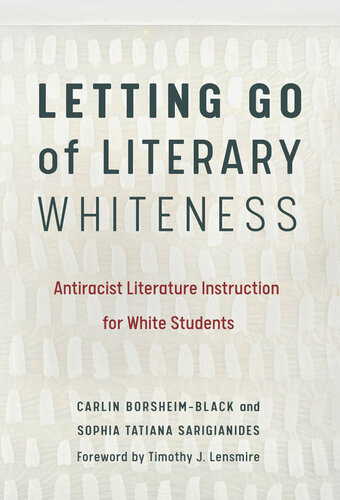

Most ebook files are in PDF format, so you can easily read them using various software such as Foxit Reader or directly on the Google Chrome browser.
Some ebook files are released by publishers in other formats such as .awz, .mobi, .epub, .fb2, etc. You may need to install specific software to read these formats on mobile/PC, such as Calibre.
Please read the tutorial at this link: https://ebookbell.com/faq
We offer FREE conversion to the popular formats you request; however, this may take some time. Therefore, right after payment, please email us, and we will try to provide the service as quickly as possible.
For some exceptional file formats or broken links (if any), please refrain from opening any disputes. Instead, email us first, and we will try to assist within a maximum of 6 hours.
EbookBell Team

4.0
16 reviewsRooted in examples from their own and others' classrooms, the authors offer discipline-specific practices for implementing antiracist literature instruction in White-dominant schools. Each chapter explores a key dimension of antiracist literature teaching and learning, including designing literature-based units that emphasize racial literacy, selecting literature that highlights voices of color, analyzing Whiteness in canonical literature, examining texts through a critical race lens, managing challenges of race talk, and designing formative assessments for racial literacy and identity growth.
"Sophia and Carlin's book is startling in how openly and honestly it takes up the problem of how to teach about racism, using literature, in White schools. As I read, I kept marveling at how courageous and direct and clear their writing is."
—From the Foreword by Timothy J. Lensmire, University of Minnesota
"Letting Go of Literary Whiteness unpacks the necessary responsibility of exploring race for all teachers. Borsheim-Black and Sarigianides center this work in English classrooms, exploring the kinds of literature, discussions, and difficult instructional decisions that teachers make every day. This book emphasizes that racial justice is a shared responsibility for teachers today and, through myriad practical examples, offers guidance for centering equity in schools."
—Antero Garcia, Stanford Graduate School of Education